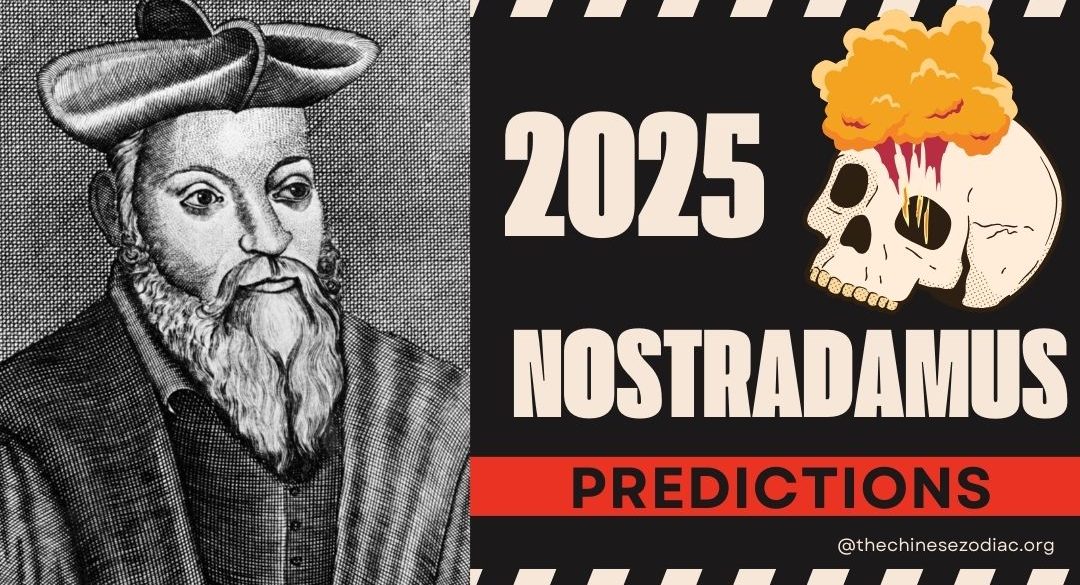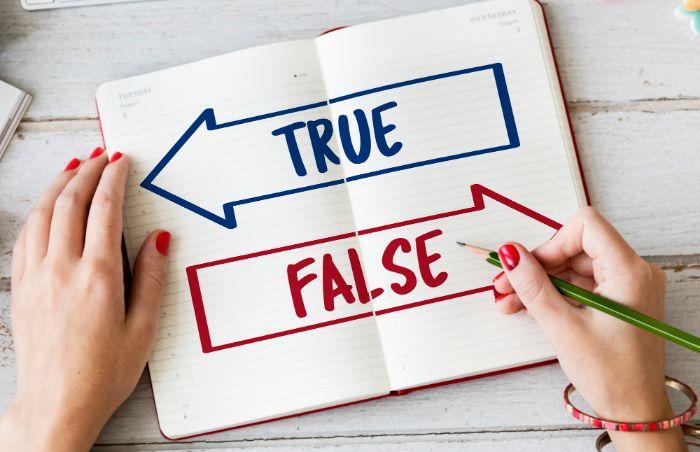As we approach 2025, some are already looking to the sky, others at their savings accounts, and some are turning to Nostradamus’ 500-year-old books. Yes, you guessed it, the old French astrologer who wrote quatrains we still leaf through today, searching for signs. This man, more than just a doctor and poet, was a visionary—at least that’s what some believe. Others see him as just a master of vague metaphors, but hey, that’s the beauty of mystery!

For 2025, Nostradamus left behind a few mysterious words, lines that everyone reads differently. About wars, economic crises, maybe even climate change—who knows? But what we do know for sure is that in times of uncertainty, when the world feels like a ship in a storm, there’s an almost natural tendency to turn to prophets. To search for clues, to find a thread that shows us there’s meaning in the chaos around us.
Did Nostradamus get it right this time too? There are those who swear he did, that every word he wrote for 2025 is some sort of prediction of what’s to come. Others say it’s all madness. But in the end, the truth lies somewhere in between: we need these stories, these prophecies, to bring a little sense to the world. And maybe, to give us a bit of hope that, no matter what happens, someone, somewhere, saw it coming.
Who was Nostradamus and why is he such a fascinating topic?
Nostradamus, whose real name was Michel de Nostredame, was a 16th-century French physician and astrologer, known for his predictions written in cryptic quatrains. First published in 1555, his work Les Prophéties drew attention during his lifetime and continues to spark interest even today.
Why is Nostradamus so captivating? For many, the fascination comes from the fact that some of his predictions seem to have coincided with major events in human history, from wars and revolutions to natural disasters and political crises. In times of uncertainty, people often turn to such texts in search of meaning or explanation. His prophecies, vague and open to interpretation, provide an ideal platform for speculation and debate.
In a constantly changing world, Nostradamus remains a mysterious and controversial figure, a symbol of the desire to understand the future and find order in chaos. His texts continue to be studied, interpreted, and reinterpreted, keeping him a subject of interest even five centuries after his death.
5 Hidden Nostradamus Prophecies for 2025 You Need to Know
1. The Fall of the 25 Thrones
In the year 2025, twenty and five rulers from twenty and five realms shall meet with untimely death. As this grave affliction befalls, the governments shall crumble, and the great institutions of the world will be rendered impotent. Trust in the governance of men shall be sorely shaken, and many nations will find themselves in tumult, seeking new chieftains or descending into chaos.
2. The Great Sound Wave
A most strange and unexplainable sound shall spread across the Earth, heard alike in bustling towns, deep forests, and barren deserts. Across the lands, folk shall be struck with disquiet, headaches, and even momentary loss of consciousness. The healing houses shall be beset with many who suffer from unaccountable fits, dire anxiety, and visions. In populous cities, the unrest shall grow, leading to upheavals, accidents, and flight as people flee from this unknown terror.
3. The Colossal Wave
Great cities such as New York, Miami, and Charleston shall face near utter ruin. The mighty waves, towering more than a hundred feet, shall engulf entire cities, laying waste to buildings, roadways, and famed landmarks.
4. The Betrayal War
The world shall bear witness to a most grievous and unlooked-for conflict, as two nations, once sworn friends, are drawn into a bitter and ruinous war. This strife shall be kindled by secret machinations, envy of riches, and hidden plots.
5. The Great Drought of 2025
A harsh and relentless drought shall afflict the whole world for the span of eight full moons. This unyielding aridness shall bring ruin to crops and diminish the flocks, leading to dire shortages of sustenance. The folk of many lands shall suffer from a dire lack of water, finding their wells and rivers parched and dry.
Why Have Many of Nostradamus’ Predictions Been Proven False?

Why have many of Nostradamus’ predictions been proven false? The answer lies partly in the way his writings have been interpreted over time and in the nature of his prophecies themselves. Nostradamus, a 16th-century physician and astrologer, composed his predictions in highly symbolic, often vague quatrains. This ambiguity allows for a wide range of interpretations, meaning that while some may seem to align with historical events, many others don’t quite fit the facts when examined closely.
One reason for this disconnect is that Nostradamus wrote in a context far removed from our modern world. He lived in an era where the understanding of science, politics, and society was vastly different from today. His worldview, and the events he predicted, were shaped by the knowledge and culture of his time. As a result, when people try to apply his prophecies to contemporary events, there’s a natural gap between his 16th-century perspective and the realities of the 21st century.
Another key factor is how people approach Nostradamus’ work. His verses are open to interpretation, and over the centuries, readers have often projected their own fears, hopes, and concerns onto his words. In times of crisis, especially, people look for meaning, and Nostradamus’ cryptic style offers just enough flexibility to support various interpretations. This has led to instances where his predictions seem to have come true—through selective reading or retroactive interpretation—but just as often, they miss the mark.
Ultimately, the fact that some of his predictions don’t hold up doesn’t diminish the fascination with his work. Nostradamus tapped into a human need to seek patterns and make sense of the future, and his prophecies remain a cultural touchstone for that reason. While many of his forecasts may not have materialized as expected, they continue to spark curiosity and debate, reminding us of our enduring desire to understand the mysteries of what lies ahead.
Recommended Books on Nostradamus
“Nostradamus: The Complete Prophecies” by Nostradamus and John Hogue
- A comprehensive collection of Nostradamus’ prophecies, interpreted and explained within their historical and cultural context.
“The Prophecies of Nostradamus” by Nostradamus and Erik van den Brink
- A detailed analysis of Nostradamus’ prophecies, with contemporary commentary and interpretations.
“Nostradamus: The Man Who Saw Tomorrow” by Lyndon H. LaRouche Jr.
- An exploration of Nostradamus’ life and his influence on predictions and history.
“Nostradamus: A Life and a Legacy” by Gordon R. McMullan
- An exhaustive biography of Nostradamus, including the historical context and his impact on prophecy.
“Nostradamus: The Evidence” by Ian Wilson
- A critical investigation into Nostradamus’ prophecies and the evidence supporting or contesting their accuracy.
“Nostradamus: The Last Age” by Nostradamus and Philip S. K.
- An analysis of Nostradamus’ prophecies, focusing on the last centuries and their interpretation in the present context.
